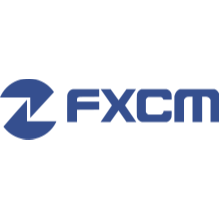Equity Derivative
A derivative instrument with underlying assets based on equity securities. An equity derivative's value will fluctuate with changes in its underlying asset's equity, which is usually measured by share price.
Investors can use equity derivatives to hedge the risk associated with taking a position in stock by setting limits to the losses incurred by either a short or long position in a company's shares. The investor receives this insurance by paying the cost of the derivative contract, which is referred to as a premium. If an investor purchases a stock, he or she can protect against a loss in share value by purchasing a put option. On the other hand, if the investor has shorted shares, he or she can hedge against a gain in share price by purchasing a call option.
Options are the most common equity derivatives because they directly grant the holder the right to buy or sell equity at a predetermined value. More complex equity derivatives include equity index swaps, convertible bonds or stock index futures.
Investors can use equity derivatives to hedge the risk associated with taking a position in stock by setting limits to the losses incurred by either a short or long position in a company's shares. The investor receives this insurance by paying the cost of the derivative contract, which is referred to as a premium. If an investor purchases a stock, he or she can protect against a loss in share value by purchasing a put option. On the other hand, if the investor has shorted shares, he or she can hedge against a gain in share price by purchasing a call option.
Options are the most common equity derivatives because they directly grant the holder the right to buy or sell equity at a predetermined value. More complex equity derivatives include equity index swaps, convertible bonds or stock index futures.
熱門資訊更多
美元/新加坡元 當日內: 有上漲的可能,目標價位定在 1.3564 。
05/03 17:35
KVB昆侖國際
新西蘭元/美元 當日內: 看漲,當 0.5960 爲支撐位。
05/03 17:35
KVB昆侖國際
NZD/JPY 當日內: 看漲,當 91.26 爲支撐位。
05/03 17:35
KVB昆侖國際
歐元/日元 當日內: 有上漲的可能,目標價位定在 165.51 。
05/03 17:34
KVB昆侖國際
英鎊/日元 當日內: 有上漲的可能,目標價位定在 193.59 。
05/03 17:34
KVB昆侖國際
英鎊/日元 當日內: 有上漲的可能,目標價位定在 193.59 。
05/03 17:34
KVB昆侖國際






